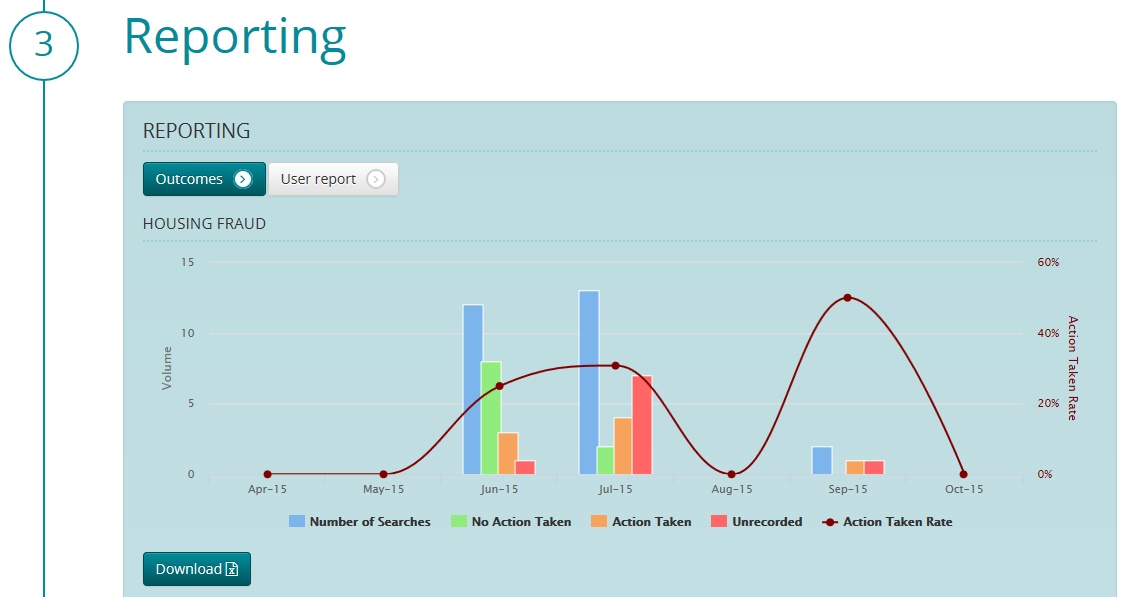13.10.15
Super hub – the next generation of counter-fraud hub for the new public sector landscape
Source: PSE - Oct/Nov 2015
 James Rawlins, senior consultant at Callcredit Information Group, looks at the evolving local authority fraud landscape and the next generation of fraud hubs.
James Rawlins, senior consultant at Callcredit Information Group, looks at the evolving local authority fraud landscape and the next generation of fraud hubs.
The fraud landscape in local authorities has changed significantly recently and we are now seeing staff transfer to the Single Fraud Investigation Service (SFIS). What does the future hold for newly formed or evolving corporate fraud teams without housing benefit and the workload it generated?
The transition to SFIS has been, and continues to be, painful for some. The Audit Commission’s 2014 ‘Protecting the Public Purse’ report noted that despite an increasing number of councils that have played their part in the fight against fraud, there were still 39 councils that did not detect a single case of non-benefit fraud. The process for others is proving more cathartic and has been a useful catalyst for change and reinvention. Research shows loss areas with new or elevated focus include direct payments, procurement and internal fraud, whilst a strong focus remains on single person discount fraud and housing fraud, including right to buy and subletting.
The right approach
Fraud teams must now consider how to approach and prioritise new risks and prevent and detect in a new fraud portfolio. How they go about doing this will be crucial in determining their success and perhaps also their longevity.
Fraud teams are now under more scrutiny and their services must be cost-effective. It’s now much more common for fraud teams to be handed targets and be measured on their successes and tangible savings. Using available insight and intelligence to accurately assess the risk posed in each case will allow teams to prioritise and will give them the best chance of hitting those targets. Taking a risk-based approach to counter-fraud and error in different areas of an organisation provides a more focused approach freeing up resources to target the highest risks of fraud or error. Those fraud and audit teams taking this approach are able to better plan proactive pieces of work as well as the traditional reactive fraud investigations.
In response to the fresh challenges, we are seeing many more authorities entering into shared services with neighbouring councils to tackle fraud together. This allows them to pool resources and intelligence as well as share the costs. Callcredit brought together 14 London Borough councils in 2013 to establish a fraud detection project called the ‘ThreeSixty Hub’, which has evolved and developed into the nationally scalable counter-fraud hub. The rationale behind the hub was initially to provide a reliable mechanism for councils to match their own data from multiple back-office systems and to share further data between each other. But we can also help match their data with other appropriate datasets, including Callcredit’s own extensive datasets, helping to provide greater insight and in turn help target potential fraudsters more effectively, saving time and money.
Robust matching remains a fundamental prerequisite for all hubs. Callcredit’s DataDNA is a unique number allocated to each individual and property across our extensive name and address universe that allows us to match reliably, regardless of any name, date of birth or address variations.

Need for analytics
The requirement for more hubs and more advanced analytics that they can provide is growing. The next generation of hub software will go far beyond data-matching and beyond local authorities too, expanding into other organisations such as health trusts and housing associations. The vision is to provide a collaboration network allowing organisations to learn from one another and share not only data, but best practice and knowledge too. Shared services need a single platform from where one organisation can manage fraud cases from any number of partners.
Any hub solutions must accommodate this with automated and collaborative decision making as well as suitable workflow or electronic output compatible with existing systems. Increased automation will allow greater volumes of cases to be worked with greater efficiency and progressive analytics will provide sharper focused risk models and exception reporting that can be honed and rolled out across the hub network. In the next generation of the hub, alerts will notify staff of suspicious or high risk events prompting rapid intervention and minimising the financial impact of fraud and they must also play their part in prevention too by acting as a gateway to services where verification can be performed and eligibility can be checked, especially where applications are made by electronic means.
Future hubs will be more than just a piece of technology. They will facilitate a collaboration of hearts and minds across organisational and geographical boundaries and generate capacity and sustainable income. They’ll do this by giving access to reliable intelligence supported by advanced analytics and both established and evolving counter fraud techniques. But most importantly, they will enable fraud teams to stay one step ahead of the fraudster.
Tell us what you think – have your say below or email [email protected]